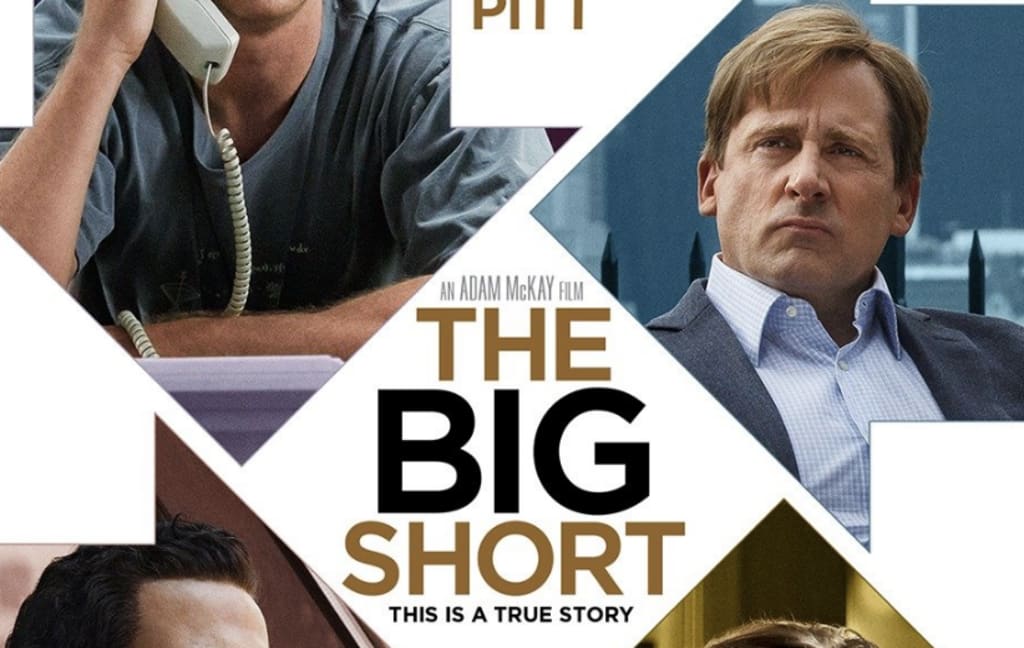“every one percent unemployment goes up, 40,000 people die".
The Big Short - and how that relates to Coronavirus policy

The famous line, "every one percent unemployment goes up, 40,000 people die" comes from the mouth of Brad Pitt in 'The Big Short', a film based around the true story of a group of investors who short (bet against) the US housing market.
This is interesting because right now, governments across the globe have created artificial recessions and we have seen record rises in unemployment as a result, in order to restrict mortality from Covid-19 and government major policy focus is trying to stop people dying from this disease through containment.
But when fact checked by the BBC in 2016, it was found that the famous line "every one percent unemployment goes up, 40,000 people die" does broadly concur with major academic studies into the impact of unemployment and recessions more broadly, albeit not an exact ratio but a rough guide.
So, have we been in quarantine for effectively no reason? In the sense that - people who didn't die from Covid-19 and who are perhaps older and not in the workforce, due to government measures, are still alive but others may well then die from the impacts of unemployment in the form of poverty.
The BBC fact check team found that, the answer is unclear, as to the exact ratio of deaths to unemployment rate rise was, but there was a rough correlation between the two.
So, the real answer is - we don't know - and we will probably never know - but the reality is, the impacts of this artificial recession on the young in general (often in precarious contract jobs and without relative security), graduates now entering the workforce, and the unemployed are receiving the full brunt of the government's current policy and may potentially see the impacts for decades.
Whereas, older people are receiving the full protection of the Government - through the triple lock scheme that protects pensions, and lockdown generally.
In the US, 39 million people have lost their jobs, due to Government measures, in just 9 weeks, according to the Department of Labour. This equates to 14.7% unemployment (April 2020), significantly above that of the rate prior to Government measures being implemented – 3.6% in January. A rate rise of over 11.1%.
So, if we were to do the maths, based around this rough ratio used in the show ‘The Big Short’, we see a significant increase in mortality from unemployment alone or 11.1 ✕ 40,000 US citizens dead = 440,000 deaths from unemployment.
If we were to take a more cautious approach to the numbers with the impact of unemployment presumed to be less but still significant, say in 11.1 ✕ 20,000 US citizens dead = 222,000 people die from unemployment.
If we compare that to the number of predicted deaths from Covid-19 with government policy action with lockdowns, it is predicted that 100,000 people have now died from Covid-19 in the US.
This coupled with the fact a vaccine is unlikely to be developed in the next year or be widely available in developing countries for decades meaning unemployment must remain high, it could be argued that the lockdown has been somewhat more damaging to people in the lockdown than the actual virus – in terms of deaths.
This article of course does not even yet consider the other consequences of the lockdown on people’s mental health generally, educational damage to young children, and the impact on abused children who, when they got to school, had some degree of protection but now don’t.
To find out more about the impacts of unemployment and mortality rates, you can listen to this podcast produced by the BBC in 2016 which explains the rationale behind this article:
https://www.bbc.co.uk/sounds/play/p03kpvk2






Comments
There are no comments for this story
Be the first to respond and start the conversation.